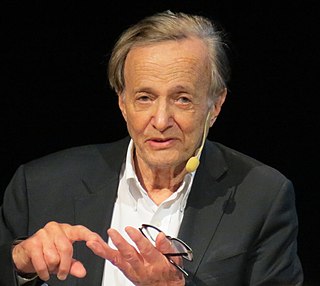A Quote by Richard Dawkins
Religions are not imaginative, not poetic, not soulful. On the contrary, they are parochial, small-minded, niggardly with the human imagination, precisely where science is generous.
Related Quotes
It is unwise to equate scientific activity with what we call reason, poetic activity with what we call imagination. Without the imaginative leap from facts to generalisation, no theoretic discovery in science is made. The poet, on the other hand, must not imagine but reason--that is to say, he must exercise a great deal of consciously directed thought in the selection and rejection of his data: there is a technical logic, a poetic reasoning in his choice of the words, rhythms and images by which a poem's coherence is achieved.
Where faith commences, science ends. Both these arts of the human mind must be strictly kept apart from each other. Faith has its origin in the poetic imagination; knowledge, on the other hand, originates in the reasoning intelligence of man. Science has to pluck the blessed fruits from the tree of knowledge, unconcerned whether these conquests trench upon the poetical imaginings of faith or not.
The work of science has nothing whatever to do with consensus. Consensus is the business of politics. Science, on the contrary, requires only one investigator who happens to be right, which means that he or she has results that are verifiable by reference to the real world. In science consensus is irrelevant. What is relevant is reproducible results. The greatest scientists in history are great precisely because they broke with the consensus.
Religion and science, for example, are often though to be opponents, but as I have shown, the insights of ancient religions and of modern science are both needed to reach a full understanding of human nature and the conditions of human satisfaction. The ancients may have known little about biology, chemistry, physics, but many were good psychologists.
The poet presents the imagination with images from life and human characters and situations, sets them all in motion and leaves itto the beholder to let these images take his thoughts as far as his mental powers will permit. This is why he is able to engage men of the most differing capabilities, indeed fools and sages together. The philosopher, on the other hand, presents not life itself but the finished thoughts which he has abstracted from it and then demands that the reader should think precisely as, and precisely as far as, he himself thinks. That is why his public is so small.
My imagination? No, I don't think it's VIVID at all. On the contrary, it's not nearly potent enough. My poor imaginative faculties have always needed...extentions. That's why I'm here with you. You're smiling again, or rather you're SMIRKING. Funny word, smirk. Rather like an extraterrestrial surname. Simon Smirk. How do you think that sounds?





































